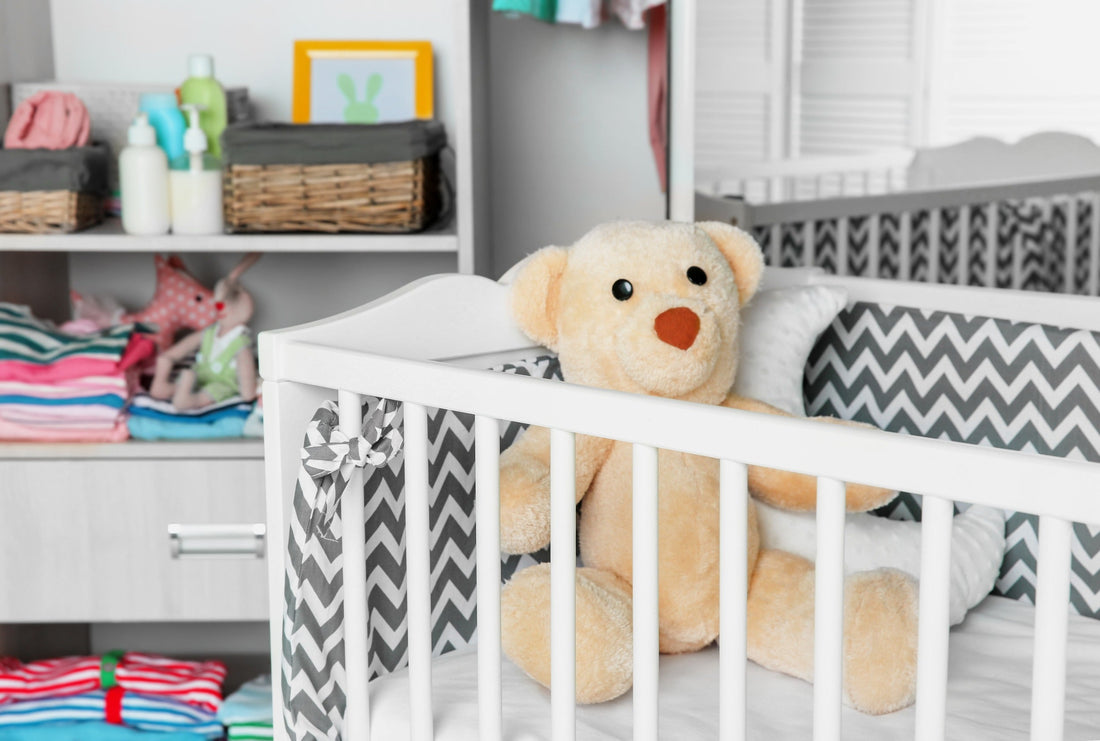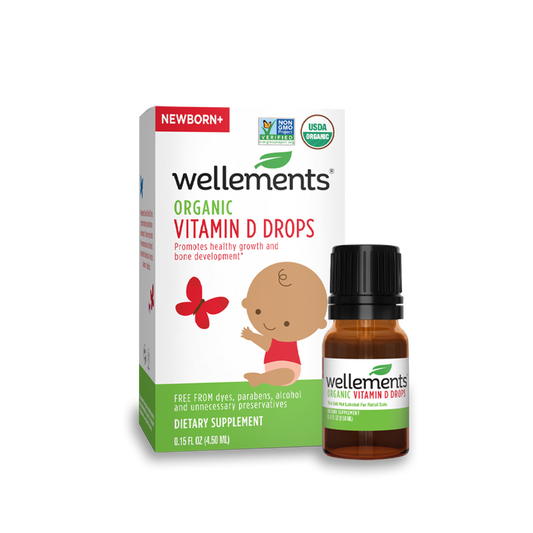Creating a Safe and Healthy Nursery Environment for Your Baby
| updated:Share

Pollution and climate change touch nearly every part of our lives. Research suggests the average baby is born with over 200 chemicals that can cause cancer or may be toxic to the nervous system and brain. As a parent, you must limit exposure to unnecessary chemicals and ensure your little one's environment is safe and healthy.
A newborn can spend up to 17 hours daily in its nursery. The baby will nap, eat, sleep, and endure countless diaper changes in a cute, meticulously planned room. Parents should consider how the room's decoration and design contribute to their little one's health and happiness.
If you are in the design stages, you are likely an expectant mother or father, and if this is your first child, the decisions may seem overwhelming. Thankfully, you can follow some fundamental advice to design a safe harbor for your future little one.
Remember, Cleanliness Is Key
Society knows that a clean home is a healthy home. However, how you clean that home can impact your newborn or infant. Little ones notoriously chew on everything and put anything in their mouths as they explore their new and exciting world. Because of the predictable behavior, parents must be careful with the products they use to clean and sanitize spaces and objects.
Did you know some cleaning products, like disinfectant sprays or anti-bacterial wipes, can contain pesticides? Parents must read every label and warning to ensure their children grow in a safe environment.
When looking for cleaning products, look for transparent brands with full disclosure labels. A manufacturer that hides its ingredient list does not deserve your money. Also, look for natural and organic diaper wipes primarily using water and essential oils. Your baby doesn't need exposure to alcohol and artificial fragrances. Finally, consider UV sanitizers for cleaning bottles, toys, and pacifiers.
Choose Organic Products
When looking for bedding, clothing, food, or dietary remedies for your little ones, look for labels with the "organic" stamp of approval. Certified organic products go through rigorous growing, processing, and manufacturing testing.
Certified organic is far superior to products claiming to be "natural." The "natural" label can mean many things, and it is often a marketing ploy only with little to do with animal-raising practices, pests, weed control, soil quality, or the use of additives in ingredients.
In the early stages of development, your little one will need some nutritional support. If you breastfeed, your baby may need extra vitamin D through dietary supplements — Wellement Certified Organic Vitamin D Drops are for newborn+.
4.2 /
5.0
(89)
89
total reviews
Vitamin D Drops
Sale price
$11.99
Beyond nutrition, look for other organic options. Manufacturers now produce bedding, cleaning supplies, formula, and other products meeting USDA organic standards and practices.

Use Non Toxic Paints and Finishes
The traditional depiction of nurseries is of brightly painted rooms with vibrant and whimsical scenery. However you decide to decorate or paint your baby's room, you'll want to be careful of the paints and finishes you choose.
Traditional paints and finishes contain volatile organic compounds. The VOCs leech out from the walls contaminating the air for years after the initial coat dries. When selecting paints and finishes for your little one's nursery, choose those with low- or zero-VOC ratings.
Also, avoid particle board or MDF furniture when selecting your newborn's crib. Both materials often contain formaldehyde that may off-gas through the years. Focus on genuine wood products whenever possible with organic or natural finishes.
Select Safe Flooring
When most parents consider safe flooring options, carpeting is the primary choice; it is soft and seems safe for newborns and toddlers. Carpeting also harbors various germs, bacteria, and chemicals. The materials may also contain VOCs that off-gas from adhesives, backings, or synthetic fibers.
Hard, natural flooring is a better option. Hardwood will stand up to spills and rough play. If you're worried about the unforgiving surface, consider picking up a natural-fiber, untreated area rug. You can wash or rinse rugs to eliminate stains and bacteria.
Suitable hard flooring options include FSC-certified wood, cork, or natural linoleum. Each surfacing product comes from sustainable practices and responsible processes.

Destress Your Baby With Fewer EMFs
Electromagnetic fields and radio frequencies in a baby's nursery can interfere with the body's biological processes, including entire systems, such as the immune system. Traditional baby monitors may produce significant levels of microwave radiation over extended periods. High exposure levels can affect a baby's stress and health levels.
When looking for baby monitors, look for low-emission devices. You can find models with zero pulsing radiation or low radiation.
The changing world and environment can feel intimidating for expectant and new parents. Thankfully, manufacturers and producers are beginning to change processes for an ailing world. As a parent, you can support your little one's health and wellness by designing a nursery using certified organic products and natural materials. Every small act can significantly change the world your children inherit.
Sources:
https://earth911.com/living-well-being/baby-tips-design-healthy-nursery/
https://us.fsc.org/en-us/certification
https://www.usda.gov/media/blog/2012/03/22/organic-101-what-usda-organic-label-means
https://www.ewg.org/research/body-burden-pollution-newborns



